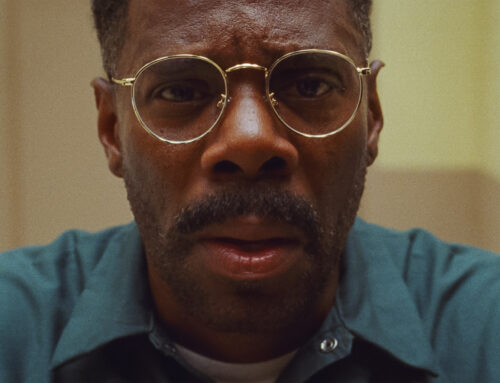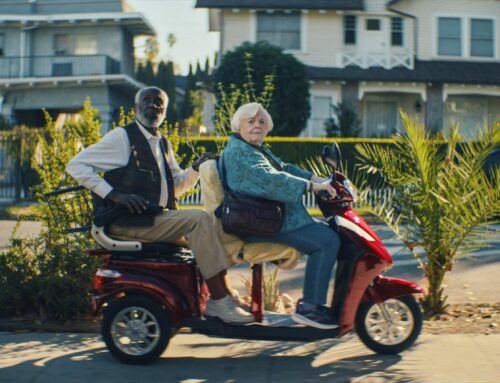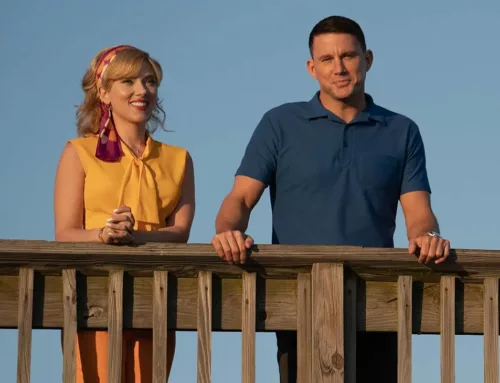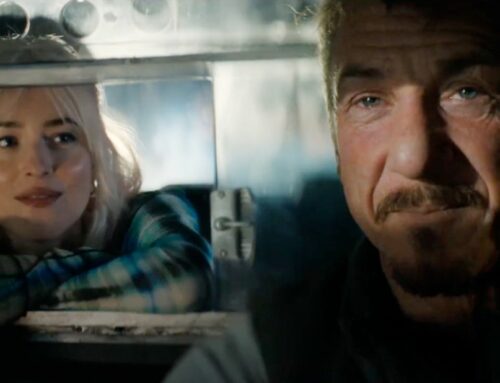The best reason to see this HULU feature film about iconic Jazz vocalist Billie Holiday is a galvanic performance by Grammy & now 2x Golden Globe-nominated singer/actress Andra Day in her first-ever big screen outing! Day has never acted before and has taken on an exceptionally demanding role as the legendary black artist whose story keeps unfolding and is more relevant than ever. The film, based on Johann Hari’s book (“Chasing the Scream”) about addiction, reveals Holiday’s being hounded to her deathbed by federal narcotics agents for drug abuse and her controversial performance of the shocking and gruesome ode on the lynchings of Black Americans–“Strange Fruit.”
Oscar-nominated director Lee Daniels (“Precious”/”The Butler”) and Pulitzer Prize-winning playwright Suzan-Lori Parks (“TopDog/Underdog”) have taken this material in hand and pushed it to the limit with gorgeous period production values, excellent casting, but little narrative subtlety, which mars their best intentions in fleshing out Holiday’s life story. The opening image is a stunner: an old B &W still photo of what appears to be a body burning after being lynched, and a quote about the failure to pass an anti-lynching bill in 1937. This sets the stage, while Billie Holiday’s searing rendition in 1939 of the song whose opening lines go, “Southern trees bear a strange fruit/Blood on the leaves and blood at the root,” sparks the fire. “Strange Fruit” often ignited protest and a rude awakening whenever she sang it. This along with her heroin addiction and an implied sexual relationship with movie star Tallulah Bankhead (Natasha Lyonne) made “Lady Day” (so dubbed by jazz saxophone legend Lester Young) as a prominent black artist a perfect target for racist Harry Anslinger (Garrett Hedlund) head of the Federal Department of Narcotics.
Anslinger puts his basement-bound black division in charge of an undercover operation to trap Holiday on drug possession, which puts agent Jimmy Fletcher in the awkward position of having to take down “one of his own.” Though Travante Rhodes is charismatic and persuasive in the part, the script never calls for him to experience and explore this tension. It’s stated rather than lived as so many moments here are. Eventually, when Holiday and Fletcher engage in a sexual relationship, we’re just not prepared dramatically for a very blunt scene in which Fletcher, mid-coitus, suddenly springs the idea of love vs sex. The scene is so awkwardly conceived, choreographed, and acted, that I’m not sure even Meryl Streep could have pulled it off.
Later, there’s another abrupt reversal in the middle of a tour that Holiday springs on Jimmy which might make sense on paper, but doesn’t spring organically from anything lived on film. Other scenes feel stagey; on the crowded courthouse steps Holiday declares stridently to a reporter,”I don’t need jail. I need help.” Another scene in which Holiday voluntarily strips naked rather than undergo a search for drugs seems farfetched, but I discovered she actually did that. So the film somehow failed to make what was true, ring true. Admittedly this is a challenge when so much of Holiday’s life seems improbably harsh and unbelievable; it may also be a testament to how much white resistance there still is to believing the truth of the absurdly brutal and inequitable Black experience in America. As a critic, I’d argue that better direction and a more resourceful actress could have met the challenge. At the end there’s a crucial moment when Holiday on her deathbed claps back at Anslinger: “Your grandkids will be singin’ ‘Strange fruit.'” I don’t know if Holiday actually said that, but I wonder if this woman had that perspective on herself, that song, and its place in history. Again, it felt contrived to make a point which the filmmakers might have allowed another character, or the viewer to conclude without the characters telling us what to know.
Much more effective is a moving sequence that makes visual Holiday’s wounds; more than any of the beatings we witness her taking from the men in her life, it sears itself into memory. The scene begins as Holiday leaves her tour bus and wanders off into the landscape which turns into a journey back through time to her abusive childhood, and then circles forward again as she steps out on a stage carrying that painful history with her. In her debut outing as an actress, Day manages a cool languor when Holiday is riding high, matched by a delirious abandon while getting high or suffering the agony of withdrawal. These moments are effective as separate points on the arc of Holiday’s external life, but a deeper performance would have connected the dots on the arc of her internal life with the aid of specific direction, judicious editing, and more nuanced dialogue. No surprise that Day is most expressive and comfortable any time she opens her mouth to sing. Listen to Ms. Day eerily channeling Lady Day’s bruised vocals and spirit in this rendition of “Strange Fruit.”
Day doesn’t simply imitate, but somehow packs an otherworldly power and tenderness into every phrase, no small feat given how idiosyncratic, brilliantly spontaneous and indelible were Holiday’s interpretive gifts. It is in these moments too, that we understand Holiday’s more universal gifts, her vulnerability and bravery as a black artist out in the world and what she dared to do within the execrable trajectory of racism in the U.S. and the machinery of government marshaled against her. Streaming NOW on HULU along with an enlightening conversation with cast and crew lead by Oprah.






Leave A Comment
You must be logged in to post a comment.